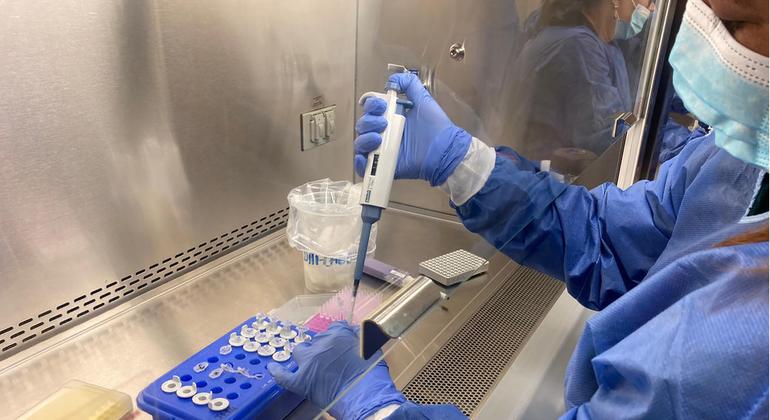The Pan American Health Organization (PAHO) celebrates from Monday until September 30 the thirtieth edition of its health conference for Analyzing lessons learned from the pandemic And the pursuit of agreements that help all countries of the continent to improve the situation in the field of health.
Participation in the high-level meeting, among other leaders, are The President of Argentina, Alberto Fernandezwho highlighted that only by investing in public health from a rights-based approach and a gender perspective will it be possible to reduce dependency and vulnerability in the region and better prepare for future global challenges.
“I want to emphasize two things that the pandemic has left us: the first is the importance of Prioritize health “The second is that, from a crisis, like any emergency, no one is saved alone,” Alberto Fernandez said in a video message, stressing the health cooperation that exists in the region.
Service interruption and reversal
For her part, the Director of the Pan American Health Organization sounded the alarm about the interruption of health services caused by the epidemic, which caused 30 years of setback in childhood immunization.
“The region is now witnessing the spread of diseases that have already been eradicated or are on the verge of being overcome,” said Carissa Etienne, urging American leaders to reverse these trends with determination and warn of diseases such as diphtheria and yellow fever.One outbreak away from becoming a regional emergency“.
Like other speakers on this first day of the meeting emphasizing the lessons of COVID-19 and solidarity to shape the future of health in the region, Etienne argued that for post-pandemic reconstruction, countries must work collaboratively.
“I hope we can do it in ten years Consider our area one (…) [y] He added that digital technologies enhance disease surveillance, improve patient experience and enhance informed decision-making in all member states.
A common health agenda
According to the director of the Pan American Health Organization, countries have translated the idea of Comprehensive health care on practical policy over the past decade and working together on a common health agenda for the Americas and the Sustainable Development Goals.
He explained, however, that although this cooperation had had a real impact in reducing inequality, countries should continue to do so. kind soul To meet the current challenges, among them low vaccination coverage again.
In his speech, Etienne also emphasized the work of the Pan American Health Organization, which has expanded technical cooperation to include Increasing the resilience of health systems and disaster preparedness, which has been instrumental in our response to Zika virus, coronavirus, and monkeypox.
pandemic inequality
Paraguay’s Minister of Public Health, Julio Borba, who is chairing the conference, touched on the problem of inequity, as demonstrated by the pandemic.
“We can confirm that this is a pandemic of inequality, Especially in the health, economic and social fieldsin which disparities between and within countries worsened.
Barba added that it is now necessary to take appropriate measures to confront the new scenario and Renewed political commitment to build a more coherent multilateral system “which prioritizes, above all, the strengthening of international cooperation, solidarity, equity and unity” among the countries of the region.
At this year’s conference, delegates will discuss ongoing health emergencies such as COVID-19 and monkeypox, and review policies and strategies to enhance the region’s preparedness for future emergencies, including but not limited to regional work to improve genetic surveillance, and build resilient health. workforce, and improving regulatory systems to facilitate the production of health technologies, such as vaccines.
In addition, issues such as the increasing burden of mental health disordersIntegrated health care and non-communicable disease control.

“Beeraholic. Friend of animals everywhere. Evil web scholar. Zombie maven.”

:quality(85)/cloudfront-us-east-1.images.arcpublishing.com/infobae/TW4DCSWSTZBNRAYF2TWELXDHAQ.jpg)

:quality(85)/cloudfront-us-east-1.images.arcpublishing.com/infobae/PNXSZVUBD5H5DP5DG762S2MIO4.jpg)
:quality(85)/cloudfront-us-east-1.images.arcpublishing.com/infobae/VFKSUSKOZNDDPAQESUW6IOXLK4)
:quality(85)/cloudfront-us-east-1.images.arcpublishing.com/infobae/RW2ZOVK5FVDATHAAJEA5NIKJNM.jpg)

More Stories
Florida is ramping up research on a marine phenomenon affecting endangered species
NASA plans to build homes on the moon by 2040
Europe is reeling from the effects of climate change: “It has already wreaked havoc on people’s lives and health”